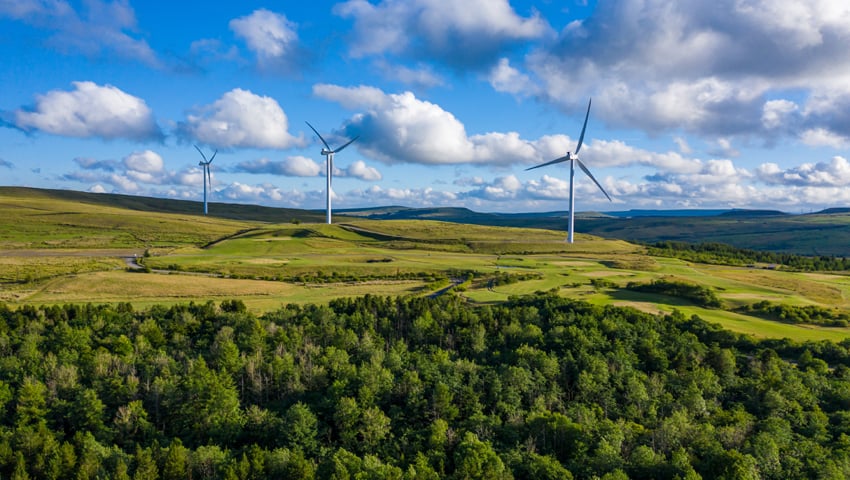THE GOVERNMENT has lifted a de facto onshore wind farm ban, in place since 2015, in what it calls a “streamlining of the planning rules”.
It has recognised that onshore wind, the cheapest form of new energy infrastructure, can have advantages in delivering electricity bill savings and increased national energy security.
The government says that new measures will include broadening the ways that suitable locations can be identified, including by communities, and speeding up the process of allocating sites by giving alternatives to the local plan process.
Jess Ralston, Energy Analyst at the Energy and Climate Intelligence Unit (ECIU), welcomed the news. She said, “More British onshore wind could help to reduce bills while improving our energy security as we’ll need to buy less expensive gas from abroad. It’s also a no-brainer for government as onshore wind is popular with the public. Around three quarters of people support new onshore wind farms in their area, including Conservative voters, and say they would be proud of their local MP for backing a new wind farm, which politicians may want to bear in mind with an election looming.
“Lifting the ban also sends a message that the government is serious about ensuring that the benefits of cheaper renewables can be maximised, which is sensible given the alternative, gas, is expected to stay 2-3 times higher than pre-crisis levels for the foreseeable future.”
The announcement comes as new polling by YouGov for the Energy and Climate Intelligence Unit shows 60% of people would be ‘proud’ if their local MP backed a new onshore wind in their area.
Communities backing local wind farms could also benefit from cheaper energy under proposals to incentivise more projects. The government has consulted on proposals for improved benefits and rewards for communities backing onshore wind farms and will set out next steps this autumn.
Secretary of State for Levelling Up, Housing and Communities, Michael Gove said, “To increase our energy security and develop a cleaner, greener economy, we are introducing new measures to allow local communities to back onshore wind power projects.
“This will only apply in areas where developments have community support, but these changes will help build on Britain’s enormous success as a global leader in offshore wind, helping us on our journey to Net Zero.
Renewables are a crucial part of Britain’s energy transition. They accounted for just 7% of electricity generation in 2010, but nearly 48% in the first quarter of 2023. The UK is already home to the world’s four largest offshore wind farms.
Onshore wind also has a key role to play and these changes will help speed up the delivery of projects where local communities want them.
These changes to the National Planning Policy Framework build on the progress already made to expand renewables which has seen more than £120 billion investment since 2010, kickstarting new industries like floating offshore wind and tidal power.
The announcement comes as the Energy Bill returns to Parliament. The Bill will provide a cleaner, more affordable, and more secure energy system that is fit for the future.
